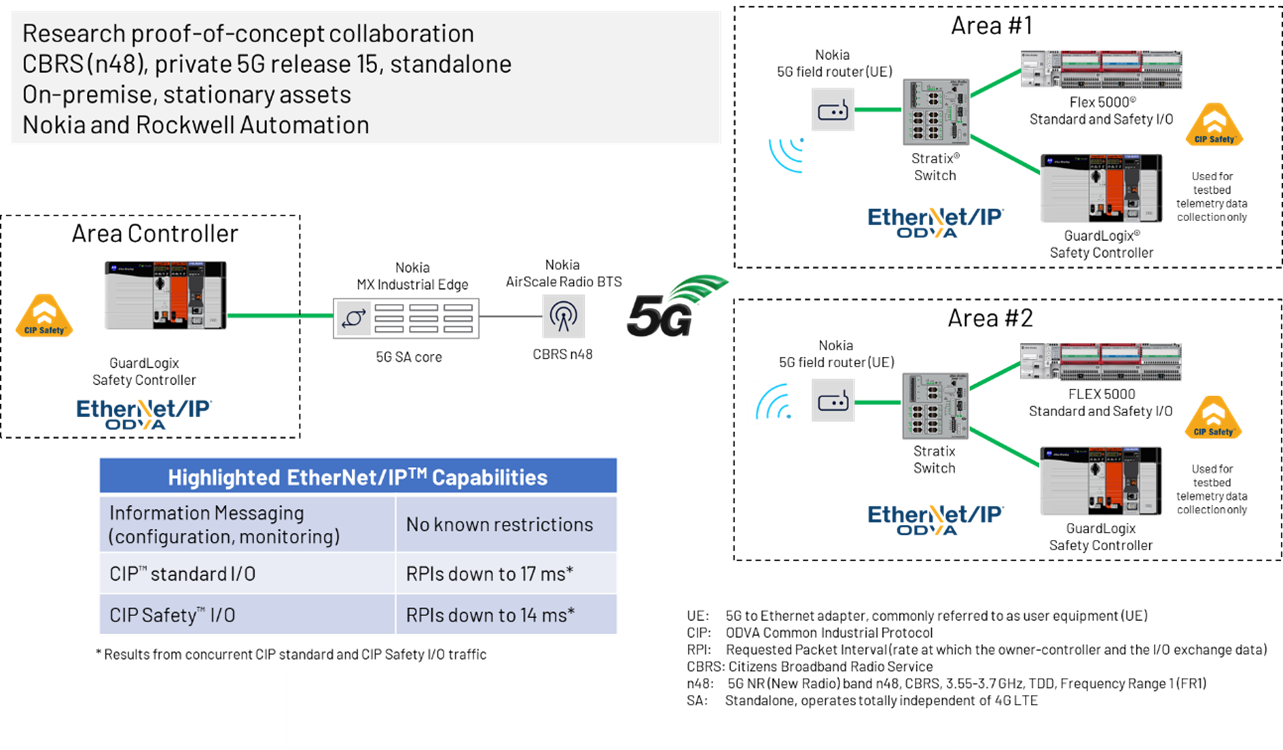The collaboration between Rockwell Automation and Nokia is pivotal towards the digital transformation of industrial networks through private wireless. Together, we enhance industrial connectivity, improve operational efficiency, and increase network customization and security. The combination of Rockwell Automation’s industrial automation solutions and Nokia’s wireless technologies supports emerging technologies such as Industrial Internet of Things (IIoT), augmented reality (AR), and artificial intelligence (AI). These capabilities are vital for industries looking to innovate and stay competitive.
A key current focus for Nokia and Rockwell Automation is the use of licensed, or lightly licensed, spectrum as an enabler for private cellular performance and robustness. In the United States, Citizens Broadband Radio Service (CBRS) provides 150 MHz of lightly licensed spectrum for use with private LTE and 5G networks. This spectrum can be requested in 10 MHz increments and used at no cost. Additionally, guaranteed access to up to 20 MHz of spectrum can be purchased via Priority Access Licenses (PALs). Private 5G is validated and ready for industrial use today, with an increasing number of customers showing trust in 5G. Consequently, the adoption of 5G standalone (SA) and CBRS is a hotter topic than ever.
Nokia and Rockwell Automation have teamed up to evaluate private 5G SA networks using CBRS spectrum for real-time industrial control with EtherNet/IP™ protocols. This technology partnership enhances industrial connectivity, leveraging Nokia's robust 4G LTE and 5G technologies to optimize manufacturing operations with high-speed and reliable connectivity. Since EtherNet/IP™ is transported over TCP/IP, multiple automation devices can be supported behind a single wireless router, without any of the special tunneling or extra equipment that is currently required for other industrial Ethernet protocols.
By integrating industrial automation expertise from Rockwell Automation with wireless technology expertise from Nokia, the collaboration improves operational efficiency through greater automation, real-time data collection and analytics. This synergy streamlines processes, reduces downtime and increases overall efficiency. Additionally, the technology partnership helps ensure a secure and dedicated network infrastructure, crucial for industrial applications.





